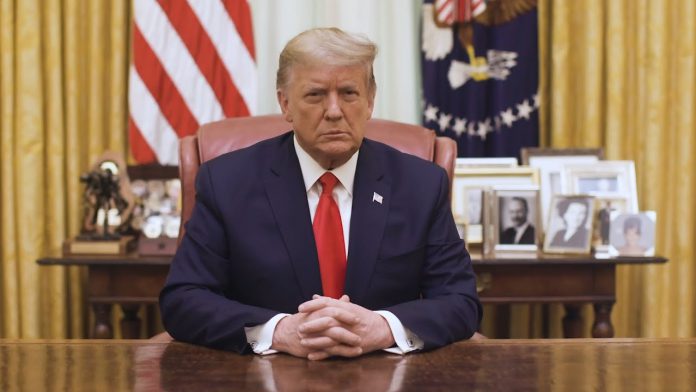Thunder Bay – OPINION – U.S. President Donald Trump proclaimed that the United States doesn’t need Canadian goods—whether it’s lumber, oil, or other critical resources— these comments have raised eyebrows across the globe.
Trump’s bold rhetoric often aimed to position the U.S. as self-reliant and unyielding in trade negotiations.
However, this latest utterance contradicts his declarations about Canada becoming the “51st State.”
It begs the question: If Canada’s resources and products are so insignificant to American interests, as President Trump is stating to a world audience, then why would integrating Canada into the U.S. even be considered by the Trumpster?
Trump is famous for not following the old adage of “Think before you speak”. This is yet another example.
Canada’s Value to the United States
Trump’s assertion that the U.S. doesn’t need Canadian goods doesn’t align with reality.
Canada is one of America’s top trading partners, with billions of dollars exchanged annually.
Lumber from Canadian forests builds American homes; Canadian oil fuels American cars; and Canadian minerals are vital to technology and infrastructure. Electricity from Ontario and Quebec lights and powers American cities and factories.
Let Ontario shut down hydro exports to the United States and likely the impact would be similar to last time Canada and the US went to war, scorching the Whitehouse.
Far too often ‘The Donald’ lets his mouth race faster than his brain. This is one of those times.
If Canada were truly irrelevant to the U.S. economy, tariffs on Canadian softwood lumber or dairy wouldn’t have been a focal point of trade disputes during Trump’s presidency.
The economic interdependence of the two countries is undeniable.
The Contradiction of the 51st State
The notion of Canada becoming the 51st state has floated in hypothetical discussions for decades.
Yet, such an idea is at odds with Trump’s claim of American independence from Canadian goods.
If the U.S. doesn’t need Canada economically, why absorb it? The answer likely lies in Canada’s vast wealth of natural resources, strategic geographic position, and political stability—factors that undeniably benefit the U.S.
Canada holds the world’s third-largest oil reserves, immense freshwater resources, and a wealth of minerals essential for industries like electric vehicle production.
By annexing Canada, the U.S. could secure these resources without the complications of trade agreements or international borders.
A Cultural and Political Clash
Beyond economics, integrating Canada into the U.S. would be fraught with cultural and political challenges.
Canadians value universal healthcare and multiculturalism—values that often contrast sharply with American norms.
Becoming the 51st state would likely dilute Canadian identity and strain the distinctiveness of its social and political fabric.
For many Canadians, the very idea of joining the U.S. is unthinkable. Independence, after all, is a cornerstone of Canadian identity, forged through decades of diplomatic success and national unity.
The Bigger Picture
Trump’s comments highlight a broader issue: the persistent underestimation of Canada’s importance on the world stage. Canada’s contributions extend far beyond exports. As a peacekeeping nation, a defender of human rights, and a key ally in global diplomacy, Canada brings something to the table that goes beyond trade metrics.
To reduce Canada to an expendable supplier of goods or a potential state diminishes its role as a sovereign nation and partner in North American and global affairs.
Conclusion
President Trump’s claim that the U.S. doesn’t need Canadian goods is as dismissive as it is misleading. The U.S.-Canada relationship is one of mutual benefit, built on shared resources, trade, and diplomacy. The idea of Canada as the 51st state seems contradictory in light of Trump’s assertion of independence from Canadian products.
Rather than undervaluing its northern neighbor, the U.S. would do well to recognize Canada’s contributions and respect its sovereignty. For Canadians, this rhetoric is a reminder of the importance of standing firm in national identity and continuing to assert our place on the world stage.







